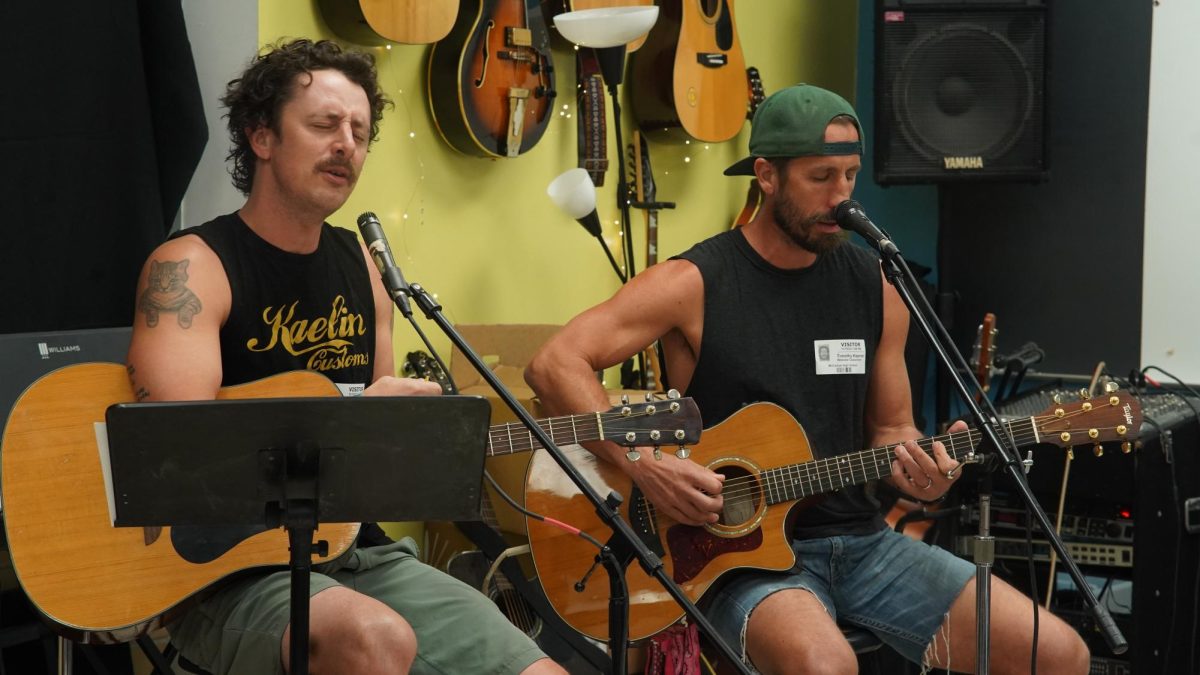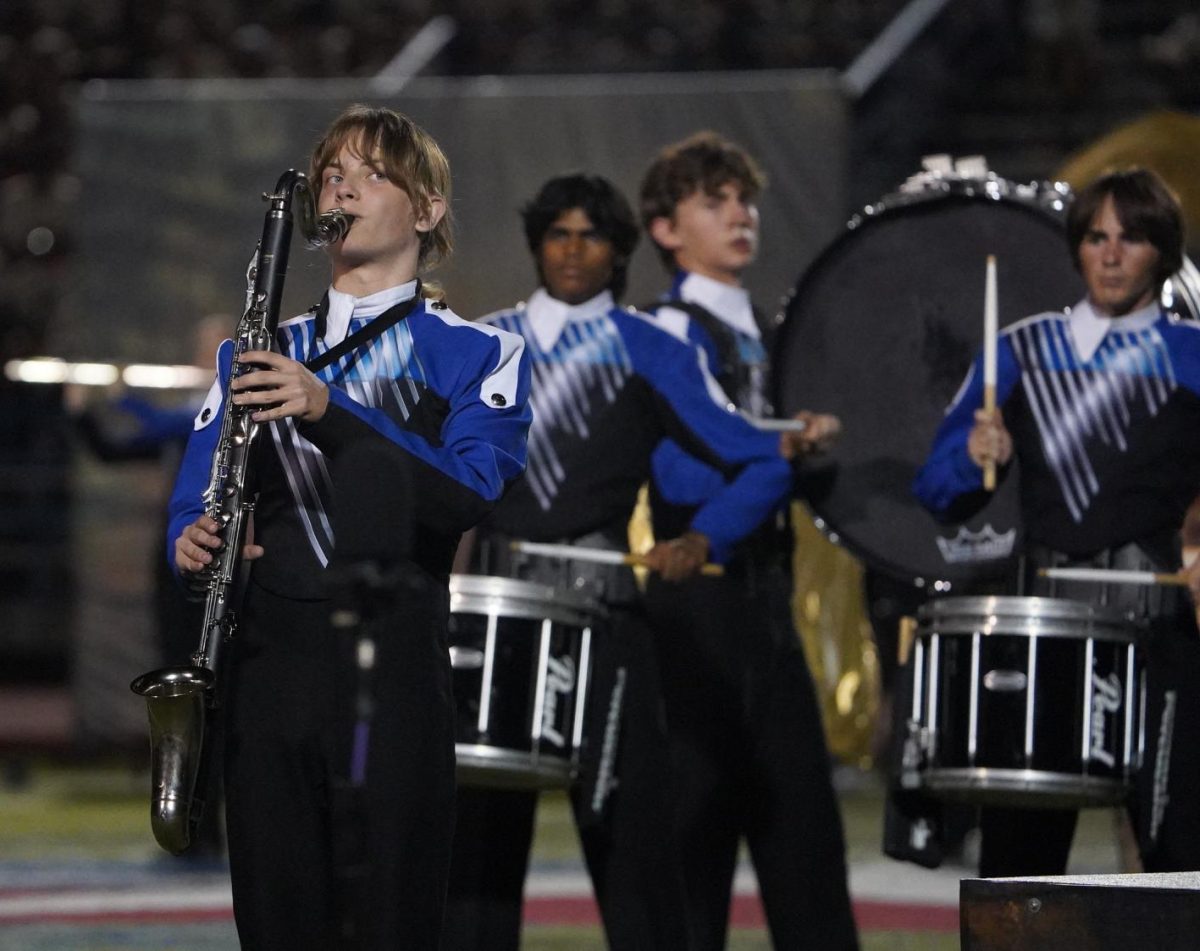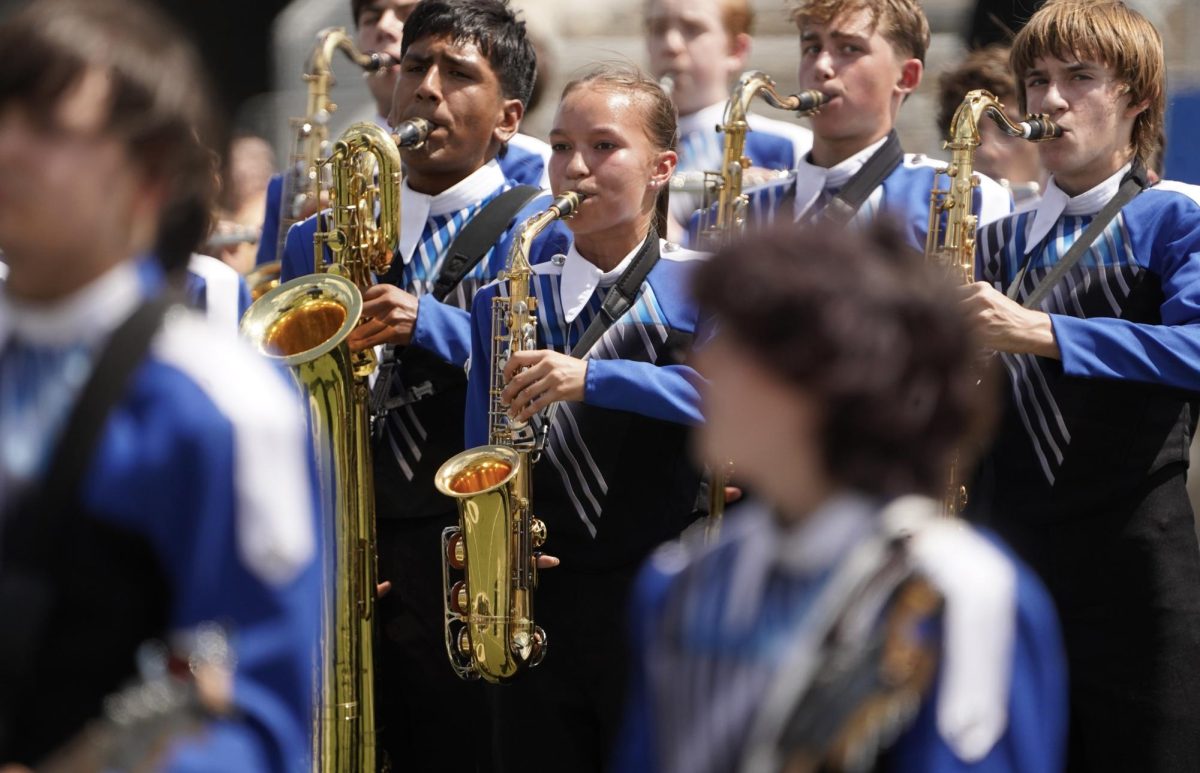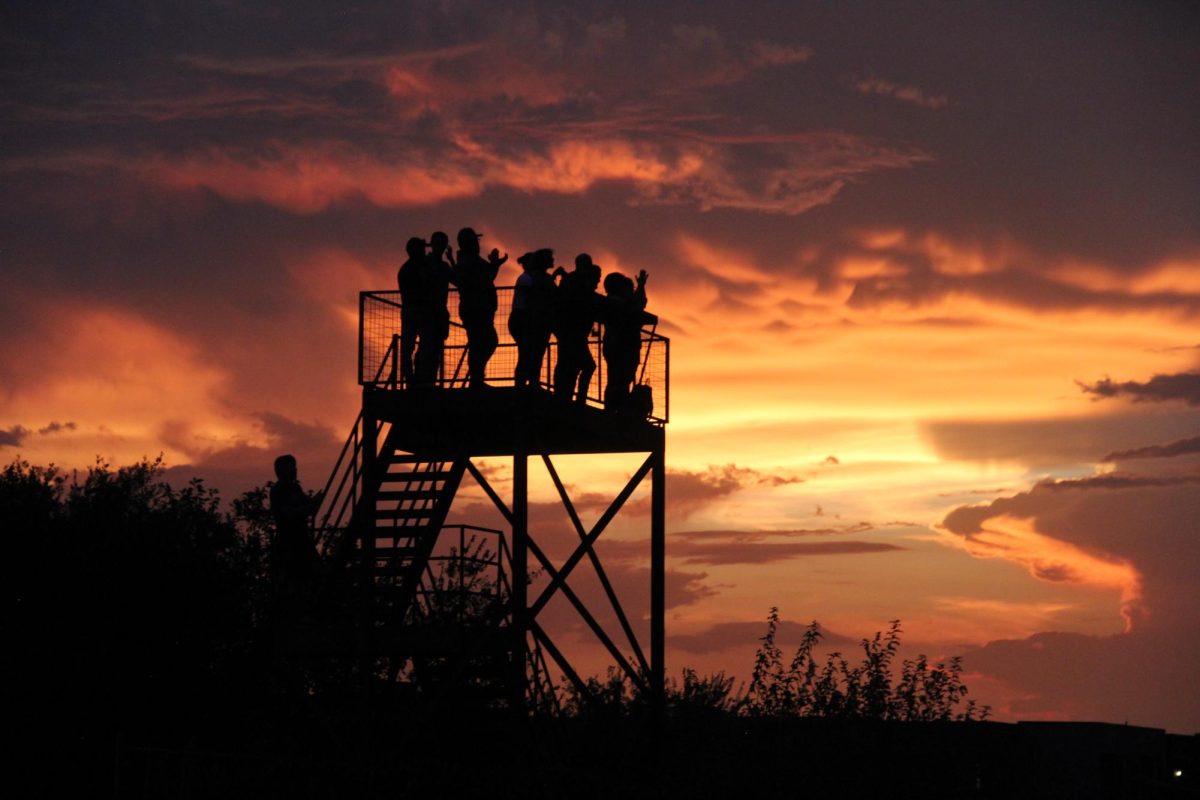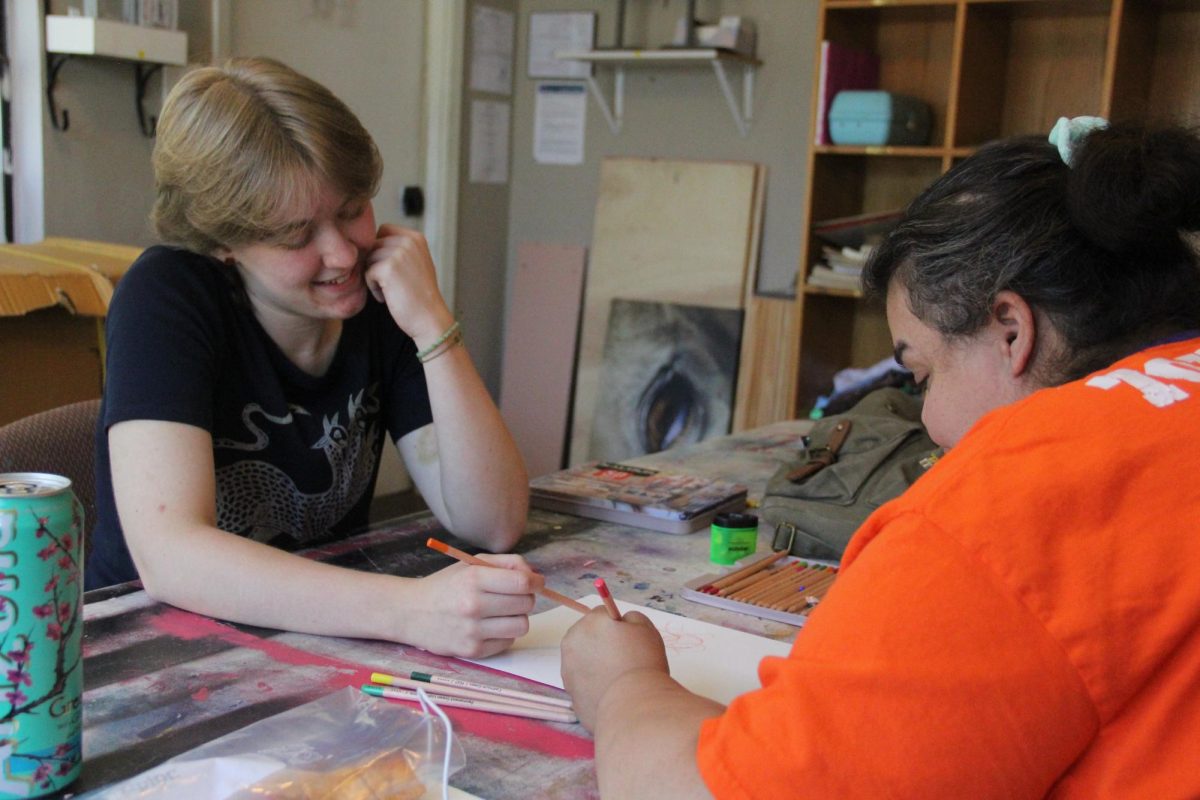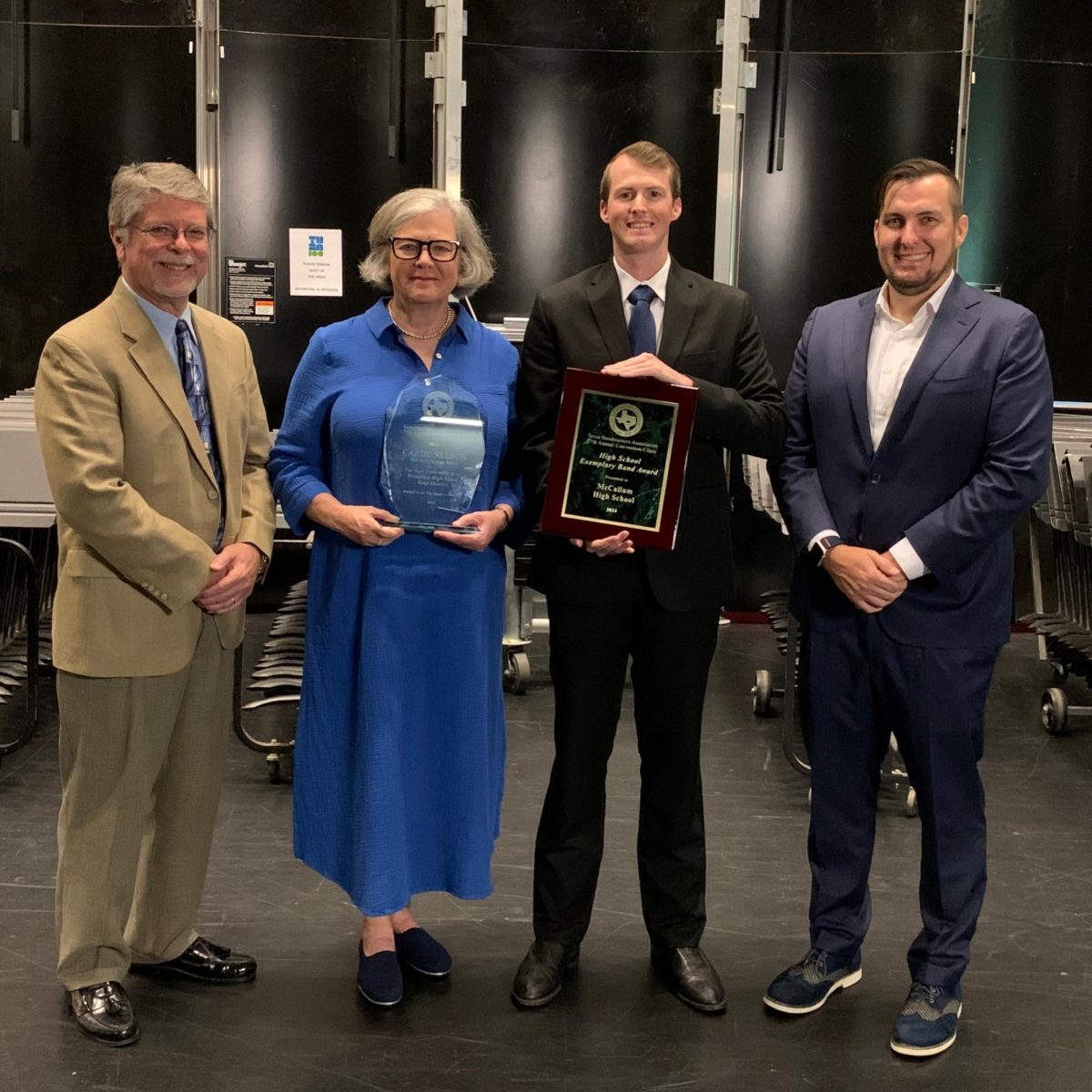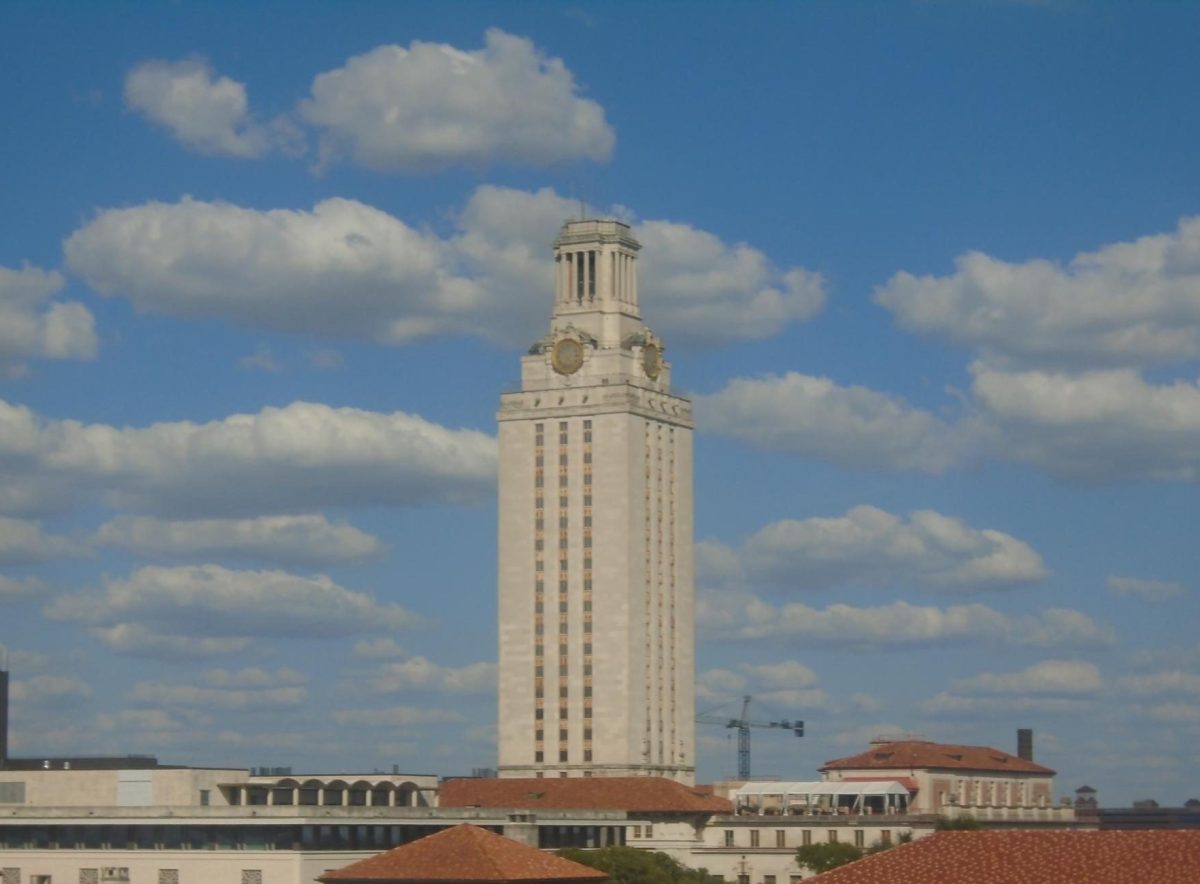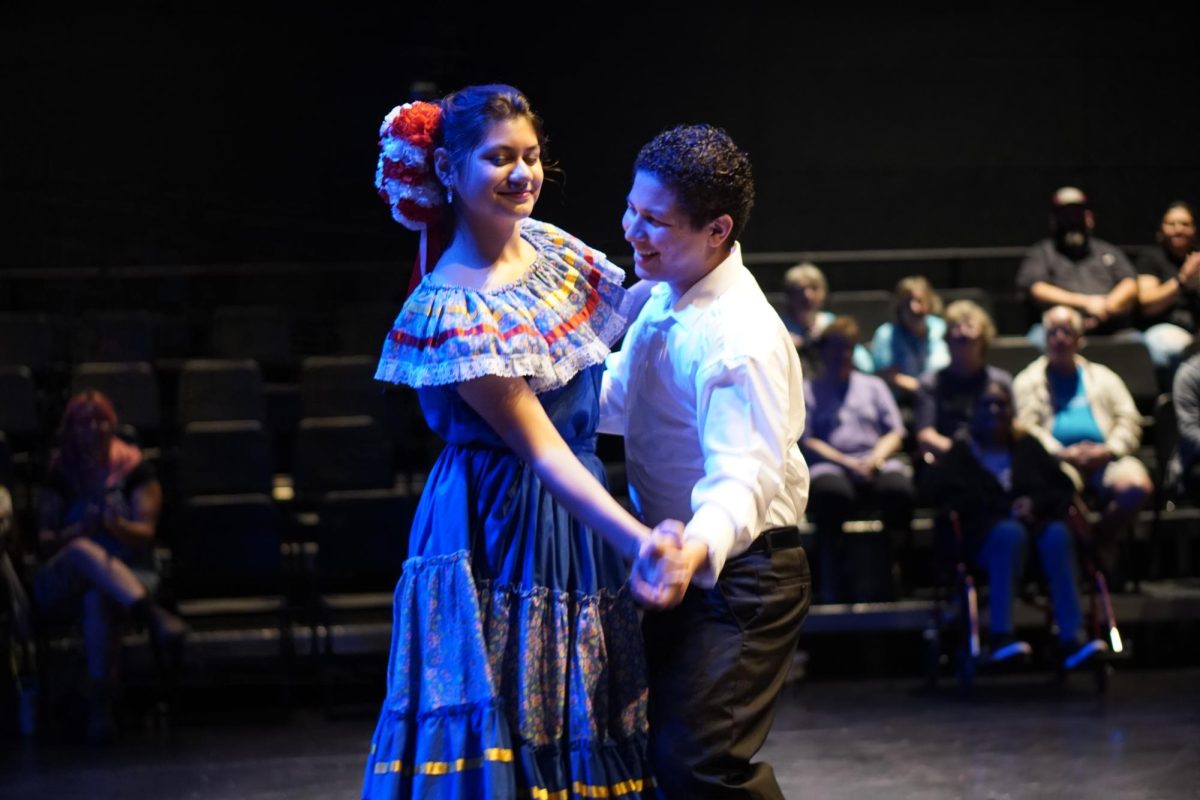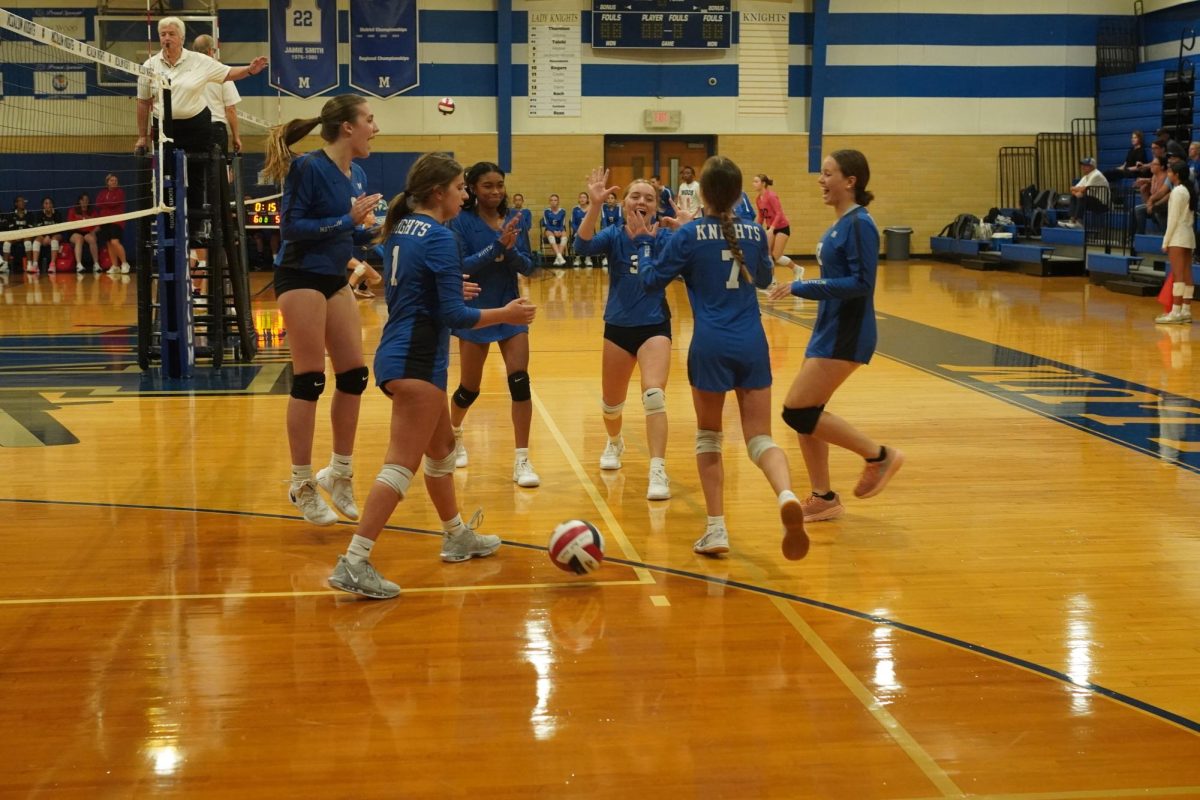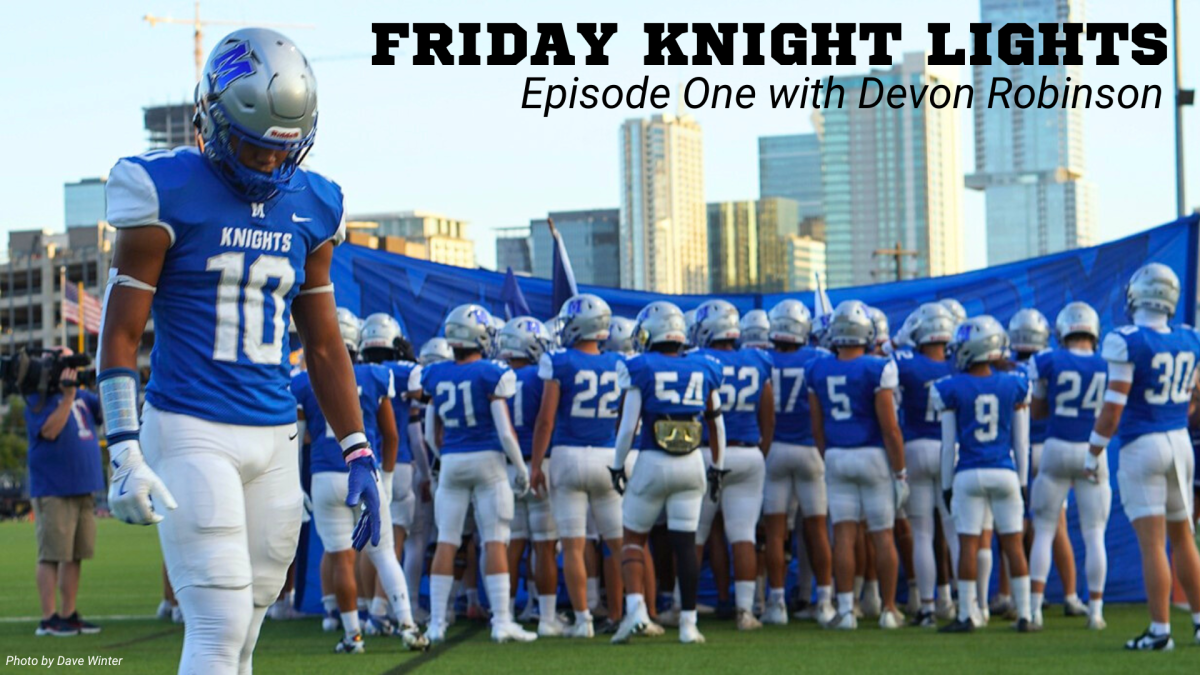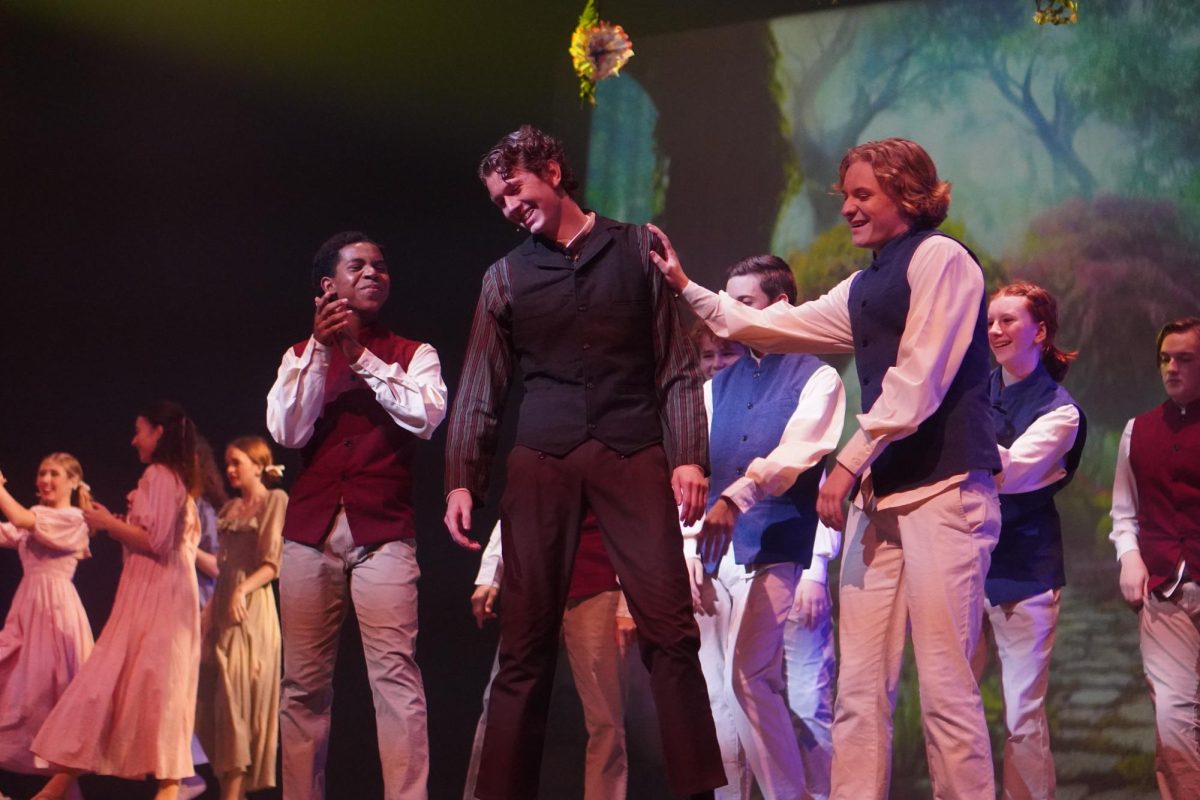By design, McCallum’s Fine Arts Academy creates an environment to induce creativity within its walls and produce well-rounded students–both academically and artistically–by the end of their four years. Taking this goal to heart, Frank Webster decided during his first year of teaching at McCallum to make it his mission to bring back once-popular songwriting class. By the end of that first year, Webster convinced the administration to put the class back onto choice sheets and offer to students a unique opportunity to write their own music in an academic setting.
A musician and songwriter himself, Webster understands the value of bringing the songwriting experience to aspiring young artists.
“Often in the music department, unless you’re doing composition or something creative, it’s about how you interpret somebody else’s work, how to play a song well, and just mastering your instrument,” Webster said. “In songwriting, you’re starting with a blank sheet of paper, which doesn’t really happen in a traditional music class too often.”
The class itself was originally developed 23 years ago at the very dawn of the Fine Arts Academy by former choir teacher Gene Raymond and English teacher Robert McArthur, whom Webster was student teaching for at the time.
“They started the program, and it was wildly successful from the very beginning,” Webster said. “It was just really cool to be here at McCallum in this environment where not only were the kids creative because of the environment, but also the home environment was a creative place, and songwriting seemed like a very natural fit for what this school could do and become known for.”
Despite its popularity, the class was dissolved several years ago, long after Webster left his student teaching role at the school. Coming back to McCallum as a teacher of his own classes this time, Webster used his new role at the school to advocate reinstating the class and revising its curriculum.
“The songwriting class is a creative writing class,” Webster said. “It’s about lyric writing and things like that, and it’s not necessarily about music theory. Nobody just improvises a perfect song. There’s lots and lots of writing process that goes into that, and that might be a little bit different than the way a traditional music teacher might teach it.”
Webster uses his theory of starting from the basics and working up to create a cohesive knowledge of songwriting. No matter the level of the student, or what their musical background is, the class provides opportunities for everyone.
“What was really important to me in the songwriting class versus all my other classes is creating a sense of community from day one, where the kids respect one another,” Webster said.
While getting up on stage and performing a song that is fully written by you can illicit fears, Webster hopes the class throughout the year eases those worries.
“The first time we did an in-class showcase, there was some anxiety just about getting up and singing in front of peers, and that can be pretty terrifying,” Webster said. “And really, a lot of people will give you lots of ideas about how to overcome stage fright, but the best thing you can do is just move through it.”
In addition to helping students overcome performance anxiety and building a classroom community, another goal of the class is to create a professional environment of dedicated musicians–regardless of their prior experience with songwriting.
“I’ve got some kids who have been in a very successful band, have been on tour with that band, and are, for all intents and purposes, professional musicians,” Webster said. “I’ve got other students in there who have never written a song in their life.. When they all come in the room together, it’s important to me that everybody respects one another and where they are on the journey level, and they do.”
Webster hopes to relay this sense of respect both inside the class and out.
“Throughout my experience of 30 years of hanging out with some of the greatest songwriters in the world, I’ve found that they always respect other songwriters, no matter where they are in the process,” Webster said. “They know what the struggle is, they know how hard it is, and they know that you have to write 100 mediocre songs before you get that one.”
The wide range of experience of the students in the class make the songwriting process different for each student in the class. For sophomore Chim Becker, the class gives her more confidence in the musical world and provides insight into the industry of songwriting.
“I want to be a musician and songwriter when I grow up,” Becker said. “I have learned valuable skills in the class, having to do with both writing and the business side of pursuing music as a full-time career. It’s a very open and accepting space, and when we present our works I feel very comfortable.”
Becker also said the class is unlike most other classes since it gives her creative freedom to develop music while learning at the same time.
“My favorite part of the class is how flexible it is,” Becker said. “We get a lot of opportunities to work independently and collaborate on different projects.”
Webster agrees that the structure of the class is considerably unconventional; however, he maintains the flexibility of the class allows for a multitude of different experiences within a single classroom.
“The only requirement is that they give it a try,” Webster said. “At this point in their very, very young careers, I’m not sure that they’re ready to define who they are as a writer or what their process is. The idea is that we’re going to try lots of different techniques, lots of different ideas, and some of it will stick, and they’ll find one that works for them. Some songwriters write completely on their own. Other songwriters thrive on collaboration, and they need that energy and that back and forth.”
Most classes simply begin with an exercise that Webster creates from things he and others have found useful in the songwriting realm.
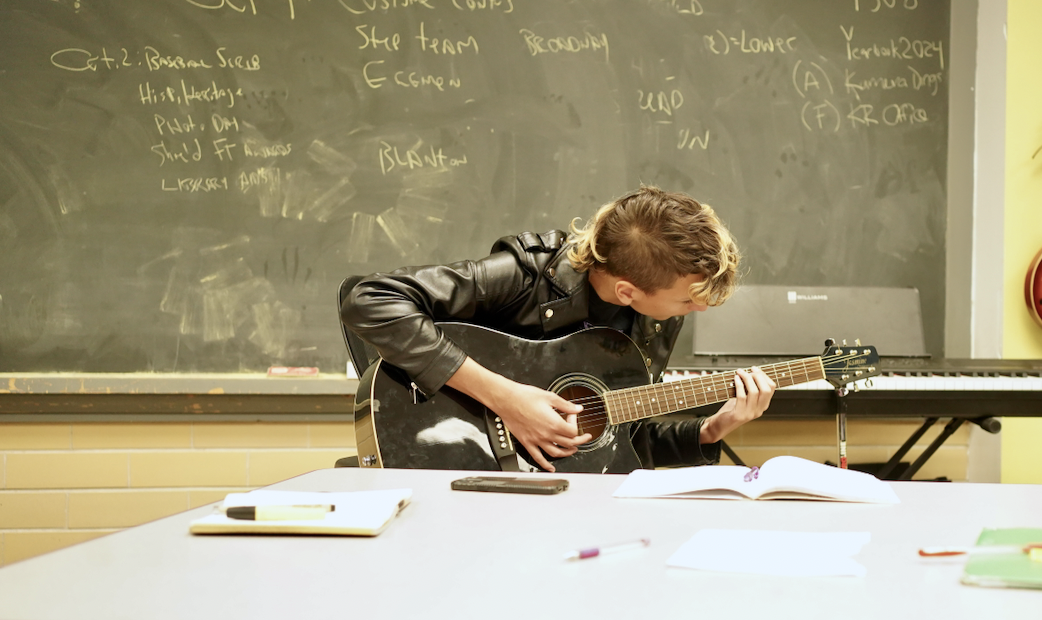
“It’s all about exercises and how you begin thinking like a songwriter.” Webster said. “We might write on a theme. A lot of songwriters will work where you just have a short little phrase and you use that as a springboard to build an entire song off of.”
One of the main principles Webster stresses in the class is performing, which the class does based on the exercises.
“In-class performances are just kind of showcases where the kids have to present where they are with their music at any particular point,” Webster said.
A big part of the songwriting process is figuring out who the audience you’re writing to is, which demonstrates one of the primary tensions of writing your own music.
“As a songwriter, are you writing for yourself or are you writing for some phantom audience?” Webster said. “Or does it all kind of come together in a magic combination?”
While the class has its temperamental moments, it’s all part of the greater picture of getting to be a performer with original pieces. To aid with the challenging moments, and provide insight into the class, Webster also brings in guest speakers to tell their experiences.
“My hope is I can get guest speakers in on a Monday every two weeks,” Webster said. “[I hope] whatever they say, whatever they share, can be a springboard for the next writing assignment. It’s just really cool to hear someone who’s an absolute professional.”
Even for experienced students such as senior Cash White, who are already developed in the music industry, have been on tour, and even produced music of their own, the class still shows unseen ways of creating songs.
“I think the best part of the class is everyone expressing themselves in a unique way,” White said.
White, part of the band Red River Trucking Company, still takes the opportunity to try something new, something that helps both his band as a whole and him as an individual artist.
“Being a songwriter involves a lot of creativity, so that’s awesome to see in a classroom with your peers,” White said. “I prefer working alone because it allows me to express myself to the fullest extent.”
The class not only helps students further their abilities inside the classroom, but also outside of it.
“There are lots of songwriting open mic nights, and I’m trying to find a night or two in the spring when we can have just a songwriter showcase,” Webster said. “It’s much more authentic to actually do it in a venue that normally hosts songwriters. Parents can come enjoy a drink and some good music, and make it a little more of an authentic experience.”
In the professional world, which Webster aims for his students to enter, not every class experience is at school.
“I think a lot of times when we’re in school, we kind of make what a concert is look very academic,” Webster said. “But if you’re a singer-songwriter in Austin, it means you haul your own gear, and it means you show up two hours early to sound check.”
As one of the music capitals of the world, Austin is the ideal spot for blossoming artists, and Webster hopes by the end of the year students will be a step closer to diving into this community.
“In Austin, people respect songwriting, and they respect original music,” Webster said. “But I think there’s a whole different level of respect when you’ve created everything that the audience hears, even if it’s not a song that the audience is familiar with. If they hear it and like it, they respect the process, respect the writing.”
Overall, the reintroduced class shows popularity among students and allows Webster to help students on the journey he once had to partake in.
“There’s a permanence to it in a way, as far as the experience goes that will last them their entire lives,” Webster said. “ I still have the songs I wrote when I was a junior in high school. They’re still part of who I am. They’re always mine. They’re nobody else’s. And you just don’t lose it. You hold on to them.”



